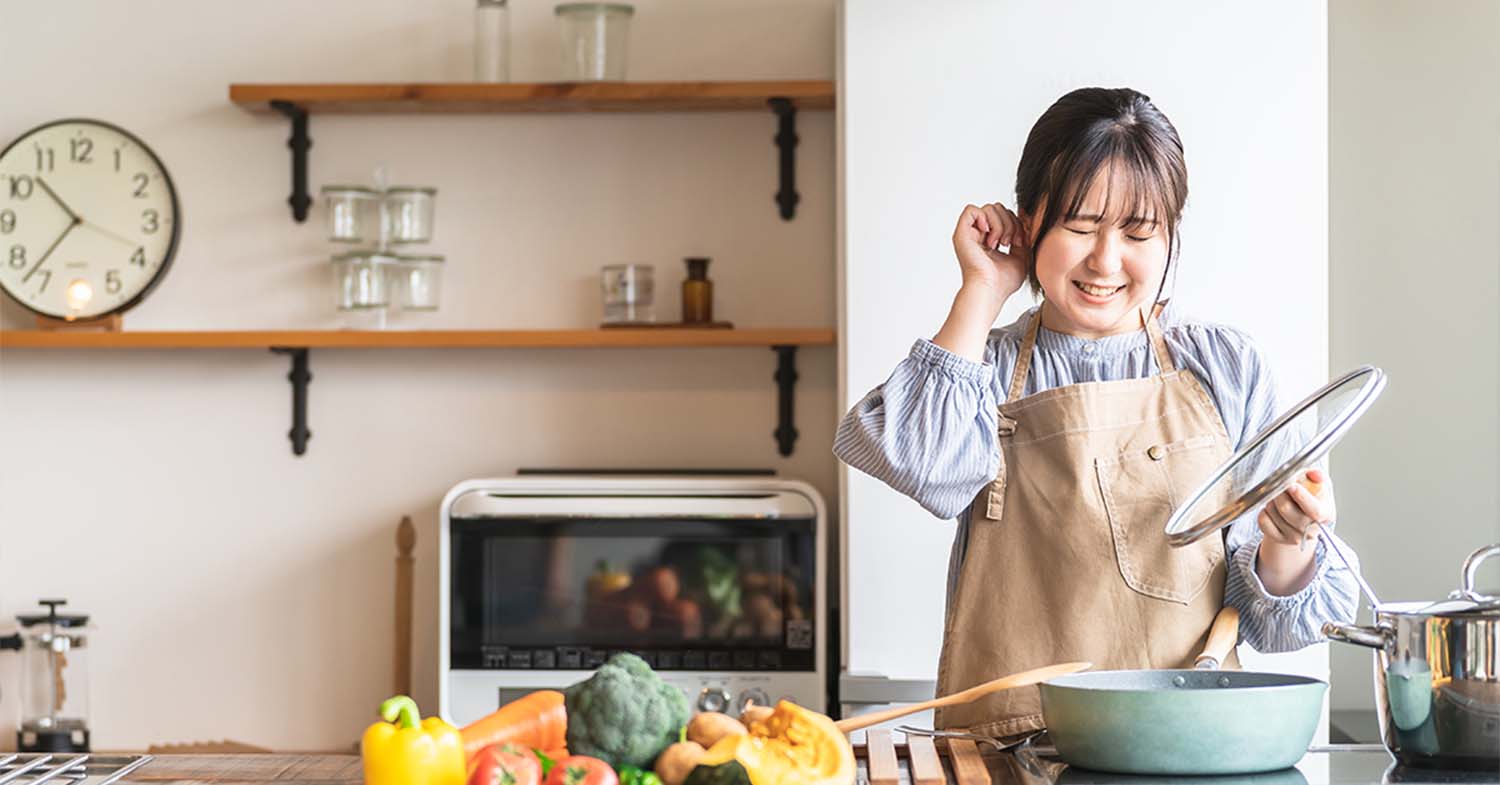Many of us think that cooking is a simple task. Some find it so enjoyable and relaxing that they refer to it as a hobby. But for many people suffering from a brain injury, cooking becomes suddenly too hard and makes them feel worse. Author and traumatic brain injury sufferer Susan Stoica devoted ten years of her life to creating a unique method that allows people with traumatic brain injuries (TBIs) to cook independently again.
Why cooking becomes an ordeal after a TBI
Cooking is a multiple-step process that is often impaired in people with TBI due to loss of executive functioning. Initiation, planning, and organisation are skills required when cooking. They are called “higher level thinking processes” because they require a lot of brain power. However, if you have damage to the front of your brain, you are more likely to have problems with initiation, planning, or organisation.
- “Initiation” is the ability to start doing something. It requires seeing what needs to be done and how to start doing it. For example, if a person wants to cook, they must first recognise the need to eat, plan what they will cook, and begin gathering ingredients.
- “Planning” is the ability to choose how to do a task, and to list all the steps needed for the completion of the task. For example, if a person wants to cook a meal they must decide where they can get the ingredients, what time to start cooking, how long it will take and how much to cook.
- “Organisation” is the ability to put all the steps of a task in the correct order. It is also the ability to store items so that you can find them later.
How to cook after a TBI
Fortunately, there are many ways to help yourself initiate, plan, and organize, in order to cook at home again.
Minimise distractions:
- Focus on one thing at a time. For example, do not listen to music while you’re cooking.
- Put things away when you are done with them. Don’t forget to close your drawers and cabinet doors!
- When you are doing a task, bring out only the things you are going to use. Put away everything else.
Follow a routine:
- Set a specific time each day to focus on planning and organising for the next day.
- Set a timer or alarm to remind you of important things to do during the day.
- Start doing things early in the morning, when you are the least tired.
- Take breaks.
Plan for safety:
- Place a fire extinguisher close to the stove.
- Wear non-slip shoes at all times when cooking in the kitchen.
- Place several phone numbers next to the phone in case you need help.
- Install smoke detectors.
- Use scissors if your eye-hand coordination makes it difficult to cut up foods.
Get organised:
- Create a short “to-do” list. Check off items as you complete them.
- Place note cards on cabinet doors and kitchen drawers, identifying what is located inside.
- Break down complex tasks into small steps.
- Carry an alarm with you, to remind you to return to the stove top, microwave or oven.
- Cook with a crock pot, a rice cooker or a steamer, which has a timer on it that turns the appliance off when the specified time has elapsed.
- With the help of a family member, friend or occupational therapist, rearrange and structure your kitchen so that it works for you.
- Cook in bulk and freeze some meals for later.
- Make your own cookbook with easy recipes, or get one specially dedicated to people suffering from a brain injury (see below).
By learning a new way of cooking that deals with the typical issues related to brain trauma, TBI survivors can gain back independence with a healthy, goal-directed activity to aid in their recovery.
Two TBIs on the same day
Susana Stoica has a lifelong passion for understanding how the brain works. She has a PhD in computer engineering with a thesis in designing computers with circuits that model the brain cells, and she also worked in the field of expert systems that mimics the human thinking process. After suffering from two traumatic brain injuries an hour apart, Stoica stopped cooking because she didn’t have the physical or cognitive energy.
Like many other people with brain trauma, as she started recovering from her injuries, Susana could no longer follow a recipe, even ones she had made for years. She couldn’t even taste what she was cooking, leading in improvisational variations that were, unfortunately, less than edible. Her motor skills were off. Stirring and other rotating hand motions made her nauseous. The tasks involved in trying to cook a small meal were too overwhelming for her brain to process.
She couldn’t even shop for food the way she had before. Stoica says, “Cooking was virtually impossible because I could not follow a recipe or remember my old recipes. If I started to cook the simplest dish and somebody would talk to me, I would end up over-salting, skipping steps or forgetting the pot on the burner. I nearly burnt down the house twice because I forgot I was cooking, and I went out shopping.”
Many of us think that cooking is a simple task. Some find it so enjoyable and relaxing that they refer to it as a hobby. But for many people suffering from a brain injury, cooking becomes suddenly too hard and makes them feel worse. Author and traumatic brain injury sufferer Susan Stoica devoted ten years of her life to creating a unique method that allows people with traumatic brain injuries (TBIs) to cook independently again.
Soul Kitchen

As a former excellent cook, this was a profoundly depressing loss, and she was determined to do something about it. In her efforts to find workarounds for everyday activities, she ended up devising her own new way of cooking, which she refined relentlessly.
As a former excellent cook, this was a profoundly depressing loss, and she was determined to do something about it. In her efforts to find workarounds for everyday activities, she ended up devising her own new way of cooking, which she refined relentlessly. With determination and patience, over a span of ten years, Susana was finally able to find a way to cook again. She decided to document her new approach to cooking so that she could share it with others in need.
The three books from the Cooking after Brain Injury: Easy Cooking for Recovery series were written to help people with brain injuries that affect their ability to focus, taste what they cook and follow directions. The step-by-step instructions break up typical cooking directions for easy absorption by those who may not be able to concentrate. As shopping for the ingredients is also a challenge for people with brain trauma, the author provides shopping lists for each dish, as well as instructions on how to use them to avoid cooking mistakes. The books in the series are increasingly more complex, offering a therapeutic path to being able to cook again in a healthy way and to regain independence through brain-exercise therapies.

